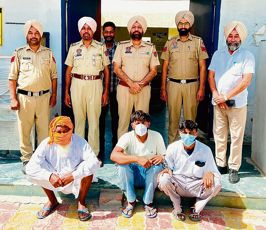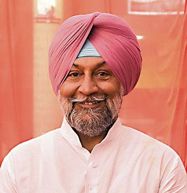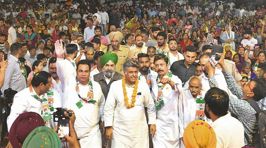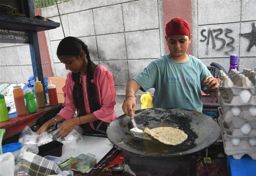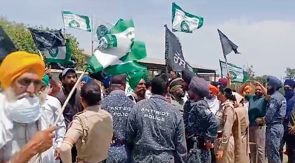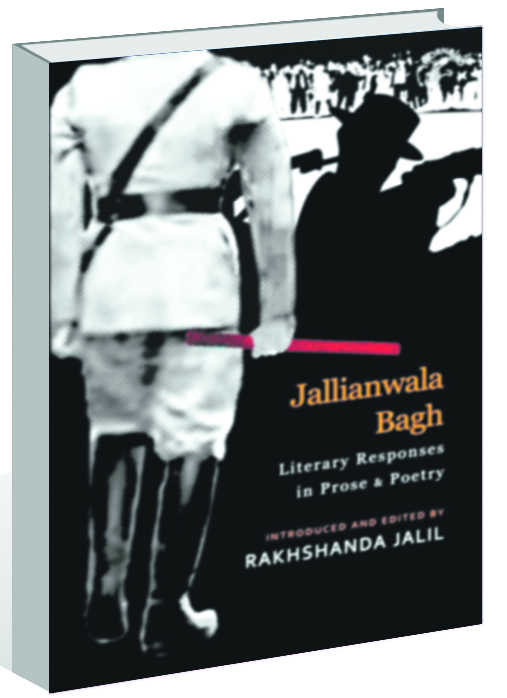
Jallianwala Bagh: Literary Responses in Prose and Poetry Introduced and edited by Rakshanda Jalil. Niyogi. Pages 227. Rs 495
Aradhika Sharma
Saadat Hasan Manto, Ghulam Abbas, Khwaja Ahmad Abbas, Mulk Raj Anand, Bhisham Sahni, Stanley Wolpert, Sarojini Naidu, Muhammad Iqbal, Sohan Singh Misha, Giani Hira Singh Dard and Josh Malihabadi, to name some authors and poets, come together in this anthology of narratives about the crime against humanity by an empire that was Jallianwala Bagh.
A hundred years have passed since the horrific incident. But the bloody event when an empire marched against a peaceful group of unarmed citizens, mercilessly gunning them down, evokes as much dismay today as it did then. The historical and political perspectives have been covered time and time again. However, the massacre also inspired writers of the time — and thereafter — to write how the carnage impacted and disrupted personal lives, as well as the life of a nation.
Jalil says in her introduction: “I was curious to see how an incident that stirred the conscience of millions, one that had far-reaching implications for the national freedom struggle, that made British colonial interests in India morally untenable, found its way through pen and paper to reach the nooks and crannies of popular imagination filtered through the mind of the creative writer.”
The works that Jalil has chosen are classics. The first story in the book is by Saadat Hasan Manto, titled, An Incident in 1919. It is about the bravery of Thaila Kanjar, ‘born from the womb of a prostitute’. A drunkard and a gambler, Thaila has two sisters (“prettiest prostitutes of their time”). He joins the revolt against the Rowlett Act and is shot, but not before killing a soldier with his bare hands. Soon after the event, however, his sisters, summoned by the British to dance, “defiled the name of their martyred brother”.
There’s an extract from Mulk Raj Anand’s seminal work, Morning Face (1968) for which he won the Sahitya Akademi Award. Anand’s young protagonist wonders what would happen to the souls of people who were killed at the massacre and his mother tells him that “they would be wandering about, angry ghosts on earth, because they had died such cruel deaths that they would haunt the streets they came from.”
The compilation also contains an extract from the Crown and the Loincloth, the first novel of Chaman Nahal's The Quartet, a Gandhian saga that deals with major incidents of the freedom struggle. The protagonist, Sunil, is captured by General Dyer and is beaten to death by him. Although the excerpt does not cover Sunil's death, but it details the hatred and vengeance that Dyer had for the Indian people.
Those Who Crawled by Ghulam Abbas, views General Dyer's humiliating 'crawling order' through the eyes of children. The order decreed that those who wished to cross the lane in which Miss Sherwood had been assaulted, would have to crawl on their bellies. Abbas’s story tells of two children who watched two athletic, insouciant young men undertake a ‘crawling race’ at the notorious spot. When the angry Sergeant threatens to shoot them, they stop. One youth reproachfully tells him: “Saaib bahadur, you have needlessly made me lose five rupees or else…. I would have won the bet.”
An excerpt from Bhisham Sahni’s play, Colour My Robe Saffron finds place in the anthology. The poetry section has poems such as Vasant in Jallianwala Bagh by Subhadra Kumari Chauhan, Punjab 1919 by Sarojini Naidu, The Bullet Marks by Sohan Singh Misha, The Blood of Hindu and Muslim by Babu Firoz Din Sharaf and Bloody Baisakhi by Nanak Singh. In addition to Jalil herself, the list of translators has eminent names such as Raza Naeem and Hina Nandrajog.
Author-critic-historian, Jalil has compiled works by the finest literary minds on the carnage. The works also show that far from being intimidated by the atrocity, it only hardened the resolve of the Indians to achieve their independence from an unjust ruler. Jallianwala Bagh, thus, marks the beginning of the end of the British empire in India.





















